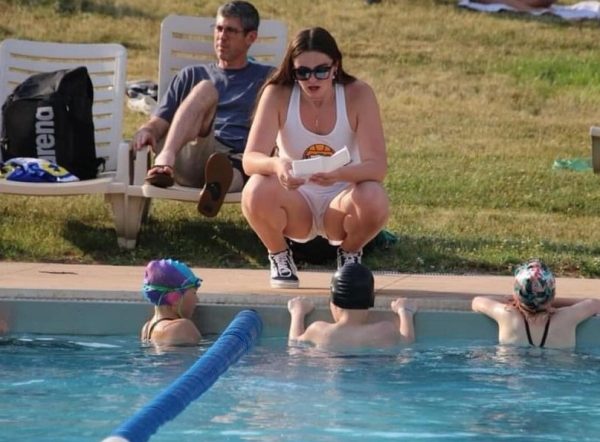How Schools Are Combating Vaping
February 2, 2020
Vaping seemingly developed overnight and instantly it was as though everyone was hooked. It was supposed to be the solution for adults that were addicted to cigarettes to quit and switch to a “better” alternative, but now teens are using the electronic cigarettes, also known as e-cigarettes, for themselves. Teens are able to use the convenient devices anywhere and everywhere, and at any time. Today, schools across the country are forced to figure out their own ways to combat vaping that occurs in school on a day to day basis.
More than 44,000 students completed the 2018 annual survey of drug, alcohol and cigarette use in 8th, 10th, and 12th graders. This report by the U.S. Department of Health and Human Services discovered that about 37% of 12th graders reported vaping in 2018, compared with only 28% in 2017. According to Dr. Richard Miech, “Vaping is reversing hard-fought declines in the number of adolescents who use nicotine.” Schools now have to add vaping to the long list of disciplinary issues to keep an eye on. But this issue is delicate, as many students are able to vape in bathroom stalls, which isn’t necessarily easy to monitor.
Many schools have a strict zero-tolerance policy for vaping, and have mandatory suspensions for students caught vaping or with vaping paraphernalia on campus. With more and more medical concerns regarding vaping coming out, schools have even gone one step further and have installed devices in bathrooms that detect vaping and automatically send email alerts to principals and/or security. Other schools have started to train high school students in prevention education and will eventually deploy these high school students to middle schools to talk to younger students about the dangers of vaping. One high school Principal, Gregg Wieczorek, said, “I would rather convince a kid to not start, than to ever have to convince them to stop.” For many other schools, including Pennridge, informational parent nights are being held to inform about the dangers and explain prevention efforts. The public health department, law enforcement, local doctors, and even experts may be present to talk about just how damaging vaping can be at these school sponsored meetings.
While schools will never be able to catch every student who vapes, they are doing their best to monitor and prevent their students from engaging in vaping, as well as educating them about the looming health effects.







